A rotor with DNA origami parts held together by an engineered tight fit instead of by covalent bonds can revolve freely, driven by Brownian motion and dwelling at engineered docking sites.
Tightly-fitted DNA parts form dynamic nanomachine
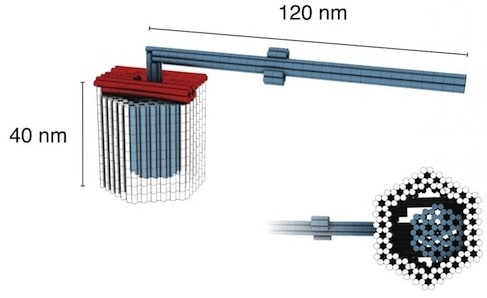

A rotor with DNA origami parts held together by an engineered tight fit instead of by covalent bonds can revolve freely, driven by Brownian motion and dwelling at engineered docking sites.
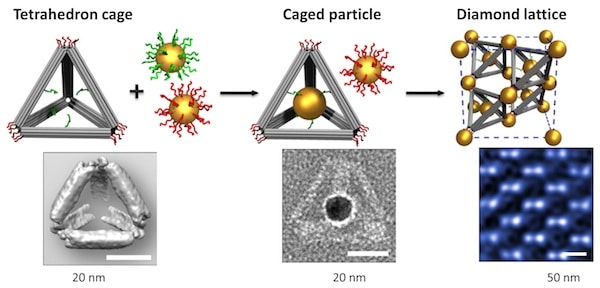
Two research teams present two different methods for using single strands of DNA to link various nanoparticles into complex 3D arrays: one using DNA hairpins for dynamic reconfiguration and the other using a DNA origami scaffold.
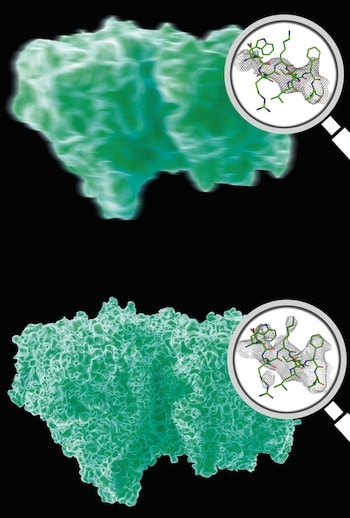
A paradigm shift in analyzing diffraction from smaller, less perfect crystals yields improved resolution and enables directly determining the phase of the diffraction pattern.

Encapsulating enzymes in nanocages engineered using structural DNA nanotechnology increases enzymatic digestion and protects enzymes from degradation.
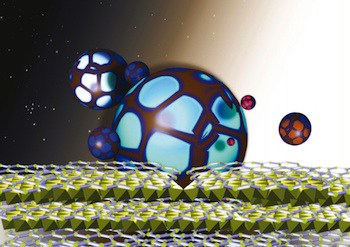
Polymer chemistry and materials research provide opportunities to explore structures that harmonize phenomena unique to nanoscale technology, the role of mechanical forces generated at interfaces, and the responses of biological systems to mechanical stresses.

New families of protein structures, barrel proteins for positioning small molecules, self-assembling protein arrays, and precision sculpting of protein architectures highlight de novo protein design advances.
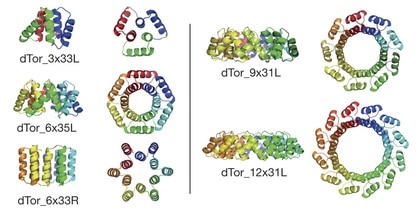
Computational design of proteins satisfying predetermined geometric constraints produced stable proteins with the designed structure that are not found in nature.
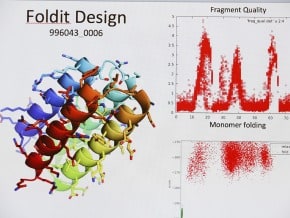
A fully automated design protocol generates dozens of designs for proteins based on helix-loop-helix-loop repeat units that are very stable, have crystal structures that match the design, have very different overall shapes, and are unrelated to any natural protein.
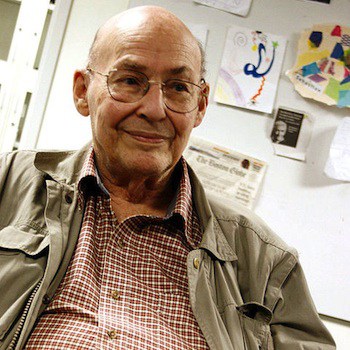
We are greatly saddened to hear of the death of Marvin Minsky, age 88. A pioneer in artificial intelligence, Marvin served as an Advisor to Foresight Institute from its earliest days.
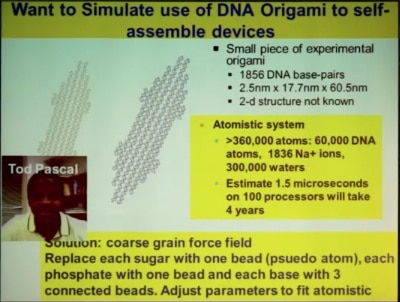
Prof. William Goddard presented four advances from his research group that enable going from first principles quantum mechanics calculations to realistic nanosystems of interest with millions or billions of atoms.